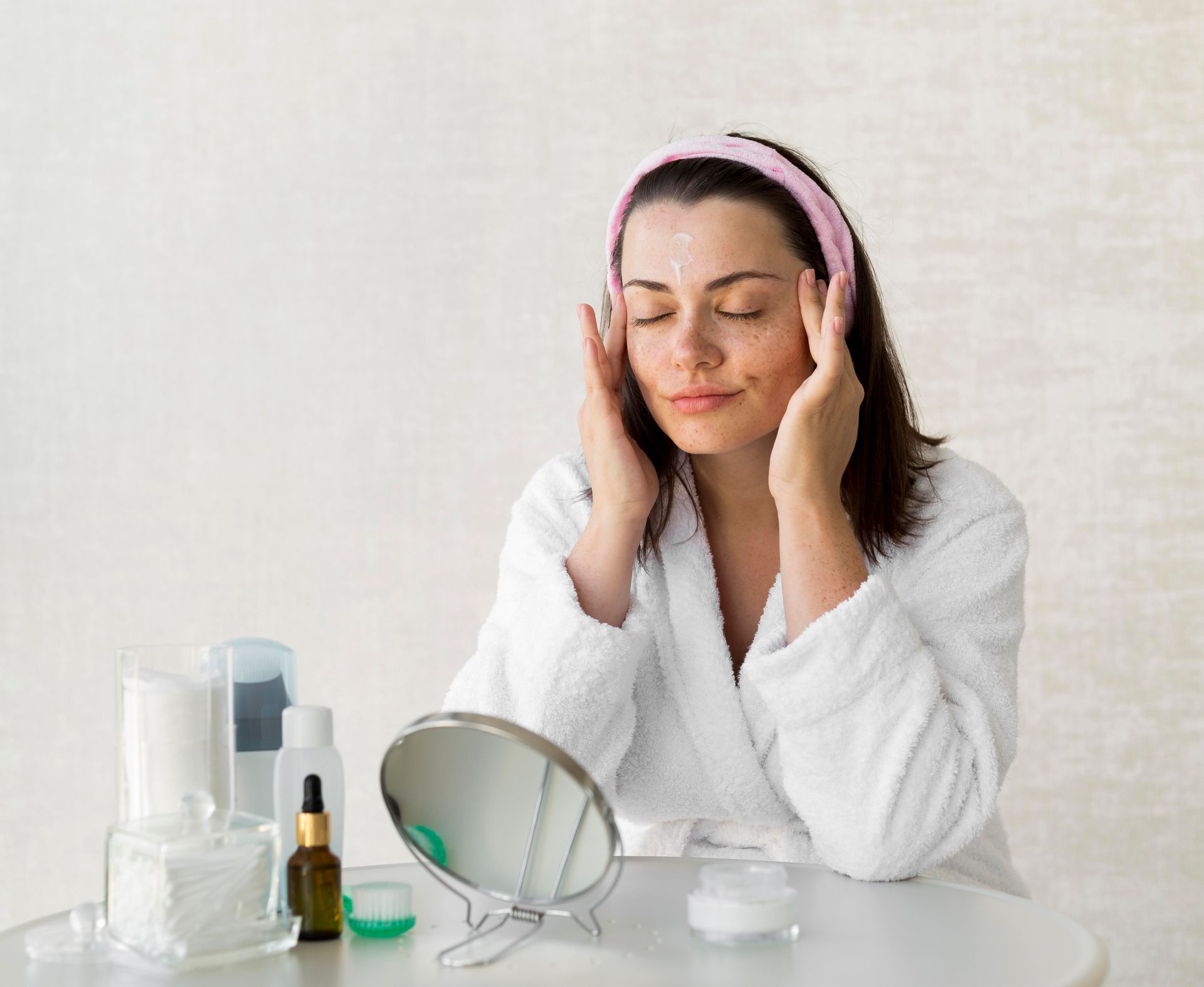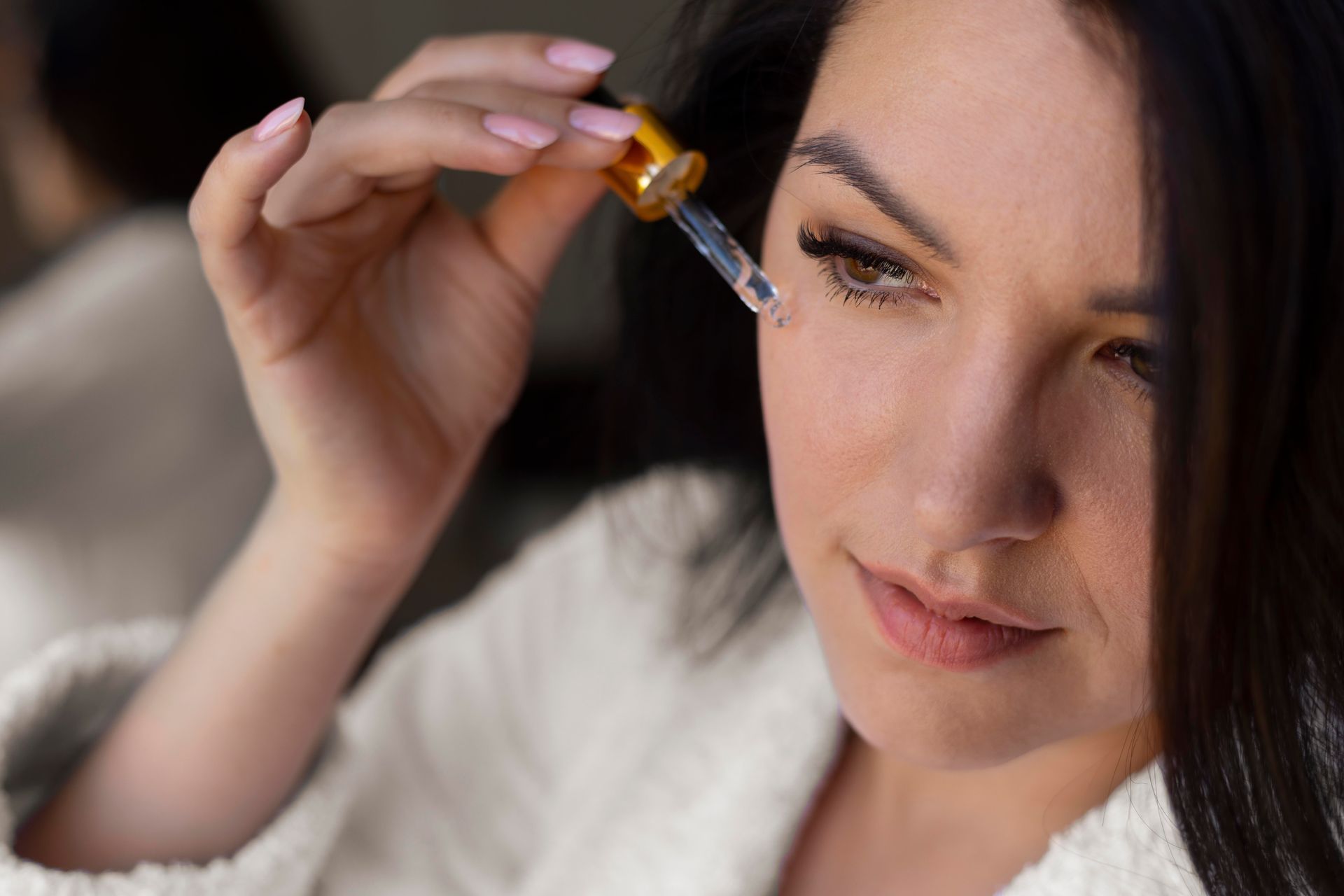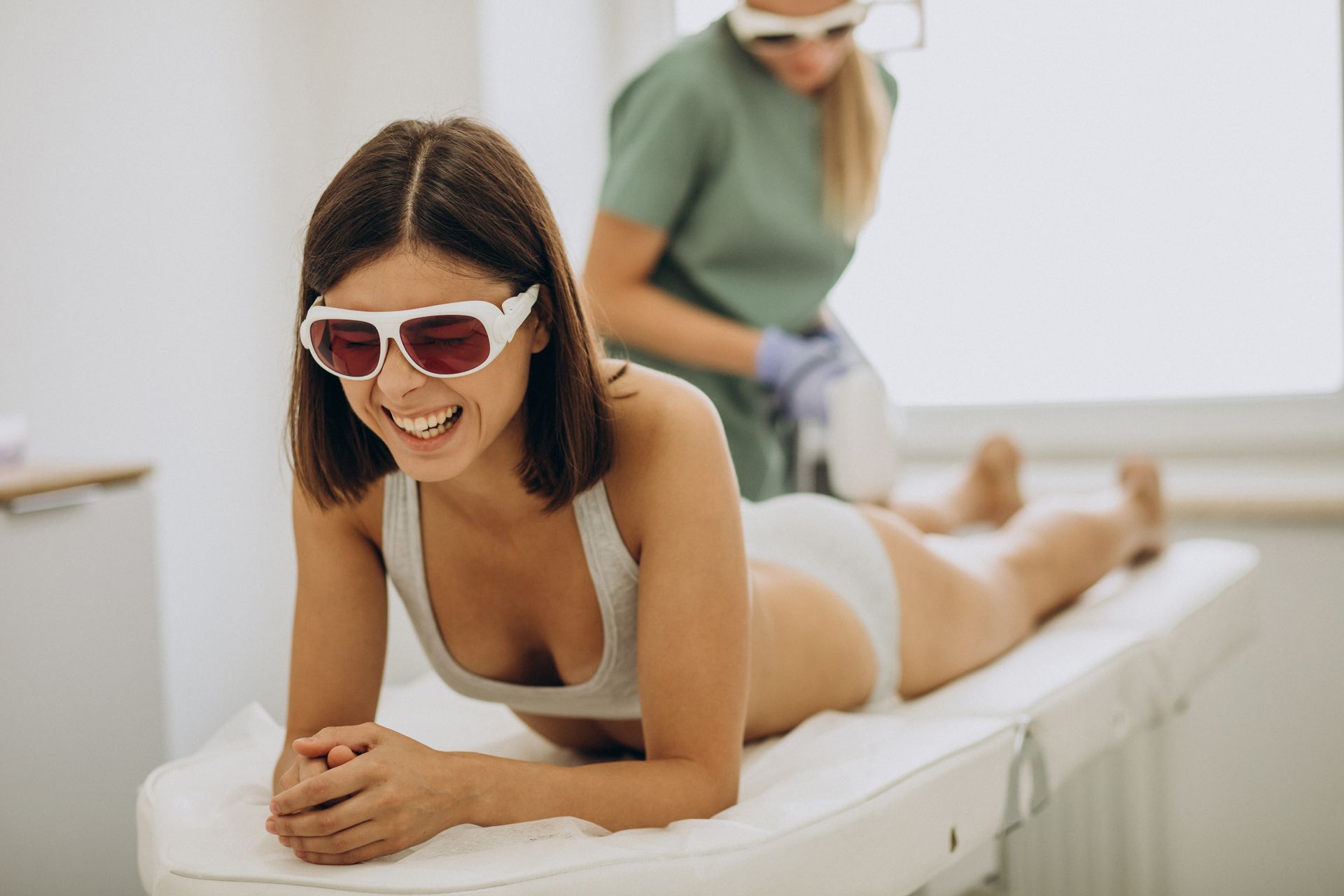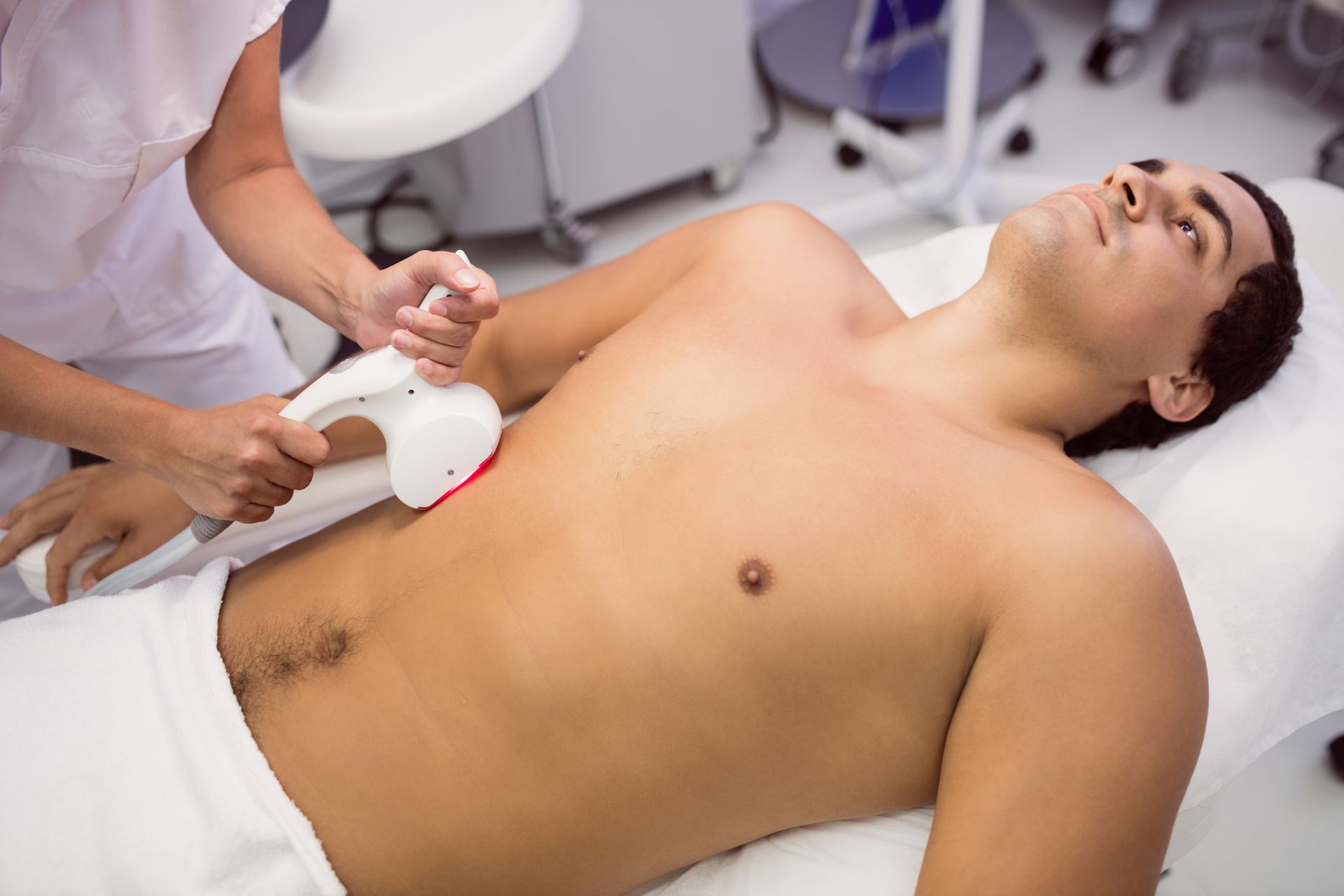Is Laser Hair Removal on the Face Safe During Pregnancy? A Careful, Expert-Backed Guide
Pregnancy is a time of incredible transformation—but it can also bring a wave of physical changes that feel unpredictable and, at times, frustrating. One of those changes? An increase in facial hair, triggered by shifting hormones. Many expectant mothers find themselves wondering:
Can I get
laser hair removal on my face during pregnancy?
Is it safe? Will it harm the baby? Will it mess with my skin?
This guide offers a clear, science-backed, and compassionate look into the topic. With expert insights from Huggie Beauty, where safety and precision are top priorities, we’ll explore what the research says, what doctors advise, and what options you have during pregnancy.
Let’s approach this gently and wisely—because both your glow and your peace of mind matter.
First: Why the Sudden Facial Hair During Pregnancy?
If you’re suddenly noticing peach fuzz turning into thicker hair on your cheeks, chin, or upper lip—you’re not alone. It’s common for pregnant people to experience an increase in facial and body hair due to:
- Elevated androgen levels
- Fluctuating estrogen and progesterone
- Increased blood flow and skin sensitivity
Most of this extra hair falls out within a few months after delivery. But while you’re pregnant, it can be distressing, especially if you're used to a smooth face.
Naturally, many turn to hair removal methods—but laser raises more questions than answers.
So, Is Laser Hair Removal on the Face Safe During Pregnancy?
There’s no conclusive scientific evidence that laser hair removal harms a pregnant person or their baby. However, that doesn’t mean it’s 100% safe—or advised.
Most reputable clinics, including Huggie Beauty, do not recommend or perform laser hair removal during pregnancy, especially on the face or abdominal area. This is not because the laser will hurt the baby, but because:
- Pregnant skin is more sensitive, increasing the risk of burns or pigmentation issues.
- Hormonal changes can affect hair growth, making treatments less effective or unpredictable.
- There’s a lack of long-term studies, and the cosmetic industry follows the principle of caution over risk.
In short: Laser hair removal on the face is not considered dangerous—but it’s also not considered safe enough to be confidently recommended during pregnancy.
What to do after laser hair removal?
Why Experts Advise Postponing Treatment
Here’s why even facial laser hair removal, which feels “superficial,” is generally avoided during pregnancy:
1. Heightened Skin Sensitivity
Pregnancy increases blood volume and skin sensitivity, making you more prone to redness, burns, or hyperpigmentation from lasers that normally wouldn’t cause problems.
2. Unpredictable Hair Growth
Due to hormonal spikes, your hair growth patterns may change during pregnancy. That means laser might not work as effectively, or you might need more sessions later anyway.
3. Safety Over Speed
With no concrete data proving safety, most licensed clinics—including Huggie Beauty—err on the side of caution and postpone treatments until postpartum or after breastfeeding, depending on the client’s situation.
What About At-Home Laser Devices?
At-home IPL (intense pulsed light) devices are less powerful than professional lasers, but they still emit light and heat. They’re not recommended during pregnancy either. These devices are unregulated, and without expert supervision, the risks of misuse or side effects are higher.
Even if marketed as “safe,” it’s best to consult your doctor first—and likely wait.
What You Can Do Instead
While laser may not be an option for now, you can still safely manage facial hair during pregnancy with alternative methods:
1. Threading or Tweezing
Gentle, localized, and non-chemical—these methods are safe and effective for small facial areas.
2. Shaving with a Facial Razor
Quick, painless, and surprisingly effective when done gently with the right blade.
3. Waxing (Cautiously)
Some women still wax during pregnancy, but be aware your skin may be extra sensitive. Test a small area first or ask your doctor before trying.
4. Depilatory Creams (Check Ingredients)
Some creams may contain chemicals not recommended for use during pregnancy. Always read labels and do a patch test. When in doubt, skip them.
And most importantly—be kind to yourself. Pregnancy is temporary. So is the hair.
What If You’ve Already Had Laser Without Knowing You Were Pregnant?
Take a deep breath. It happens more often than you’d think. If you’ve had a laser session before realizing you were pregnant, there is no need to panic. The light from the laser doesn’t penetrate beyond the skin and can’t harm your internal organs or developing baby.
Still, let your clinic know immediately so they can pause treatments and guide you through what to do next. At Huggie Beauty, discretion and non-judgmental care are guaranteed.
When Can You Resume Laser Hair Removal?
Most experts, including technicians at Huggie Beauty, recommend waiting:
- Until after giving birth, and
- Once you’re no longer breastfeeding, to ensure hormones have settled and skin sensitivity returns to normal
This ensures the laser treatments are safe, effective, and deliver the best results.
Final Thoughts: The Wait Is Worth It
Laser hair removal on the face might be appealing during pregnancy—but the safest choice is to wait. The potential skin risks, hormonal unpredictability, and lack of clear scientific research make postponement the wisest route.
Pregnancy is about nurturing, protecting, and caring for yourself in new ways. And that includes your skin.
So give yourself grace. Focus on gentle alternatives for now. And when the time is right, Huggie Beauty will be here to help you pick up right where you left off—with expert, customized care and results that truly last.










